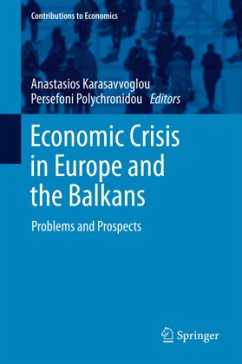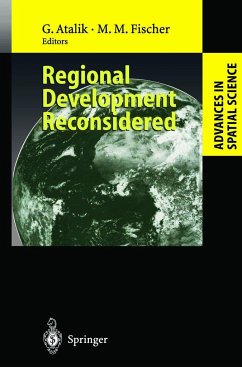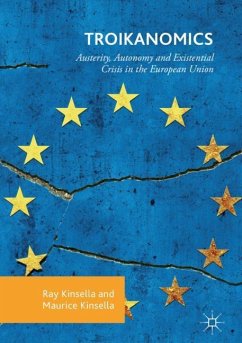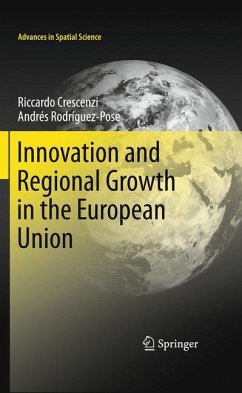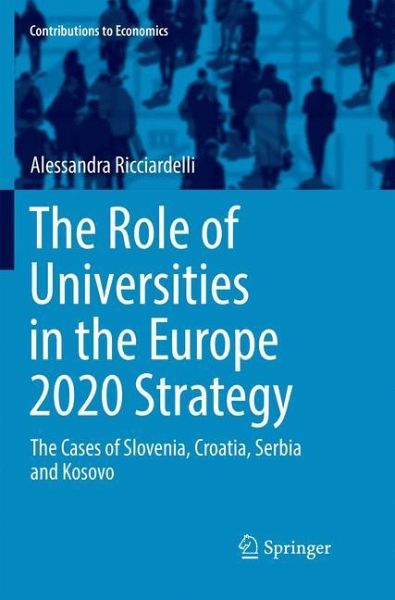
The Role of Universities in the Europe 2020 Strategy
The Cases of Slovenia, Croatia, Serbia and Kosovo
Versandkostenfrei!
Versandfertig in 6-10 Tagen
76,99 €
inkl. MwSt.
Weitere Ausgaben:

PAYBACK Punkte
38 °P sammeln!
This book provides a unique study of the role of universities, as organisation systems, in the pursuit of the Europe 2020 strategy. While Europe 2020 focuses on creating the basis for the advancement and cohesion of the EU's member states, it also has an important role in influencing the development strategies for potential candidate states. In this regard, the book examines two new member states - Slovenia and Croatia - and two potential EU candidate states - Serbia and Kosovo - in the Western Balkans. Based on these cases, the author argues that the operationalization of the Europe 2020 stra...
This book provides a unique study of the role of universities, as organisation systems, in the pursuit of the Europe 2020 strategy. While Europe 2020 focuses on creating the basis for the advancement and cohesion of the EU's member states, it also has an important role in influencing the development strategies for potential candidate states. In this regard, the book examines two new member states - Slovenia and Croatia - and two potential EU candidate states - Serbia and Kosovo - in the Western Balkans. Based on these cases, the author argues that the operationalization of the Europe 2020 strategy depends to a great extent of the role and contribution of tertiary organisations such as educational institutions, i.e. public and private universities, and therefore requires the formulation of an economic development strategy at the national level that is capable of duly allocating the available financial resources. The study suggests that the paradigm shift represented by Europe 2020has helped to forge a new academic identity, adding to the relevance of university organisations as fundamental agents for the promotion of economic development; in addition, it shows that an intensive learning process involving major structural changes is underway in the four countries discussed, as well as many other EU member states.




